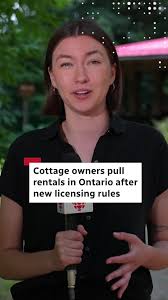
Introduction
As the popularity of cottage rentals continues to surge in Ontario, it has become increasingly important for property owners to understand the licensing regulations that govern this industry. With visitors flocking to Ontario’s picturesque landscapes, a comprehensive grasp of cottage rental license regulations ensures compliance and promotes responsible tourism. This article outlines the current regulations, providing essential information for both cottage owners and potential renters.
Current Regulations Overview
In Ontario, the regulations governing cottage rentals can vary significantly from one municipality to another. However, most require cottage owners to obtain a license to operate short-term rental properties legally. This is crucial not only for adhering to local laws but also for maintaining safety standards and protecting the environment.
The licensing process typically involves submitting an application to the local municipality, paying a fee, and possibly undergoing inspections to ensure the property meets health and safety requirements. In many cases, property owners must prove that they have appropriate insurance to cover potential liabilities.
Key Requirements
Some common requirements for obtaining a cottage rental license in Ontario include:
- Registration: Property owners must register their rental with the local municipality and provide accurate information regarding occupancy numbers, rental rates, and owner contact information.
- Insurance: Landowners are often required to have liability insurance that addresses their rental operations.
- Safety Standards: The property must comply with fire safety regulations, including smoke alarms and carbon monoxide detectors, and adhere to building codes.
- Noise and Conduct Regulations: Owners should establish clear rules concerning noise and guest behavior, ensuring a pleasant environment for neighbours.
Recent Changes and Developments
Recent discussions among Ontario municipalities have centered around stricter enforcement of rental regulations amidst growing concerns over overcrowding and the impact of short-term rentals on local communities. As part of these efforts, some cities have begun to implement strict caps on the number of nights a rental can operate annually or limiting new licenses in high-demand areas.
Moreover, provincial discussions continue about a standard regulatory framework that could provide clear guidance to property owners across Ontario. Such a framework aims to harmonize regulations while balancing property rights with community concerns.
Conclusion
Understanding the cottage rental license regulations in Ontario is essential for property owners who wish to navigate the complexities of this growing market legally and effectively. With ongoing changes in regulations, staying informed on local legislation is crucial to ensure compliance. As Ontario’s allure as a cottage destination continues to grow, adhering to these regulations fosters a healthy balance between tourism, community integrity, and safety for both owners and renters alike.



